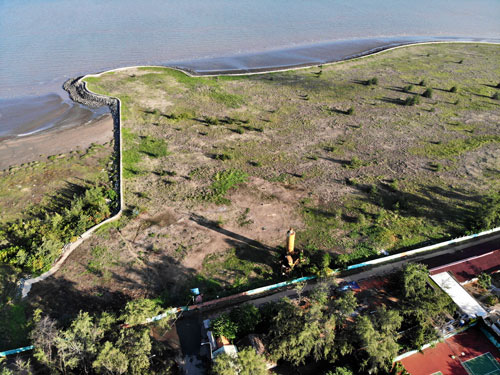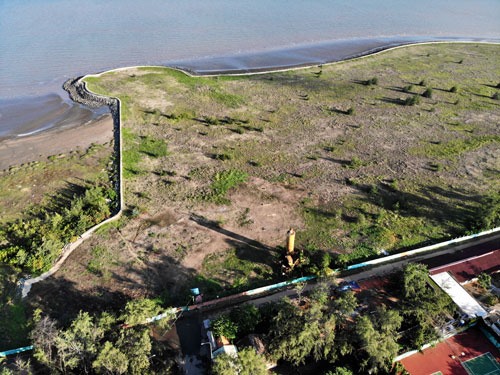[ad_1]

HCM CITY — The Cần Giờ Sea Encroachment Project, also known as the Cần Giờ Tourism Urban Area Project, is expected to contribute to HCM City’s development by creating 25,000 jobs and adding a significant amount of revenue to the city budget.
The chairman of Cần Giờ District People’s Committee, Lê Minh Dũng, said the HCM City People’s Committee and local authorities had collaborated on urban planning for the project.
The project is located in the coastal area of Long Hòa Commune and Cần Thạnh Town in Cần Giờ District, covering 2,870ha of land, according to the investor, Cần Giờ Tourism Urban Area Joint Stock Company.
The project is 18km from the Cần Giờ Mangrove Biosphere Reserve Area; 2.7km from the navigation channel of Xoài Rạp RIver; 4.5km from Lòng Tàu River; 17km from Vàm Sát Eco-Tourism Area; and 4km from Monkey Island.
About 228,506 people are expected to live in the area, and nine million tourists would visit every year, Dũng said, adding that it would create 25,000 jobs.
“Considering the available resources of Cần Giờ, the new tourism urban area would help Cần Giờ become a significant regional and international tourism spot,” a member of the district People’s Committee told Người Lao Động (Labourer) newspaper.
Investors said the project would generate revenue from rents from business activities, provide locals with a green space to relax, and improve the competitive advantage of HCM City.
When it is completed, it would contribute about VNĐ2.9 trillion (US$124.7 million) per year to the city budget and about 2-3 per cent of the total retail and commodity revenue for HCM City.
Trần Thanh Long, a resident of Cần Thạnh Town, said that locals’ quality of life would improve because of better infrastructure built as a result of the project.
Some environmental experts however said that urbanization of Cần Giờ District should be considered carefully since this area is under frequent impact of rising sea levels. In addition, the low bulk density of the soil here makes it vulnerable to future erosions and collapses.
They also warned that the Cần Giờ biosphere reserve, a UNESCO-listed site southeast of the city, was a crucial shield and should be spared from development. “This forest has a natural capacity to prevent coastal erosion and storm-induced coastal flooding.”
Architect Ngô Viết Nam Sơn shared views with the environmental experts, stressing the importance of preserving nature in the area, especially the Cần Giờ Mangrove Biosphere. — VNS
[ad_2]
Source link
